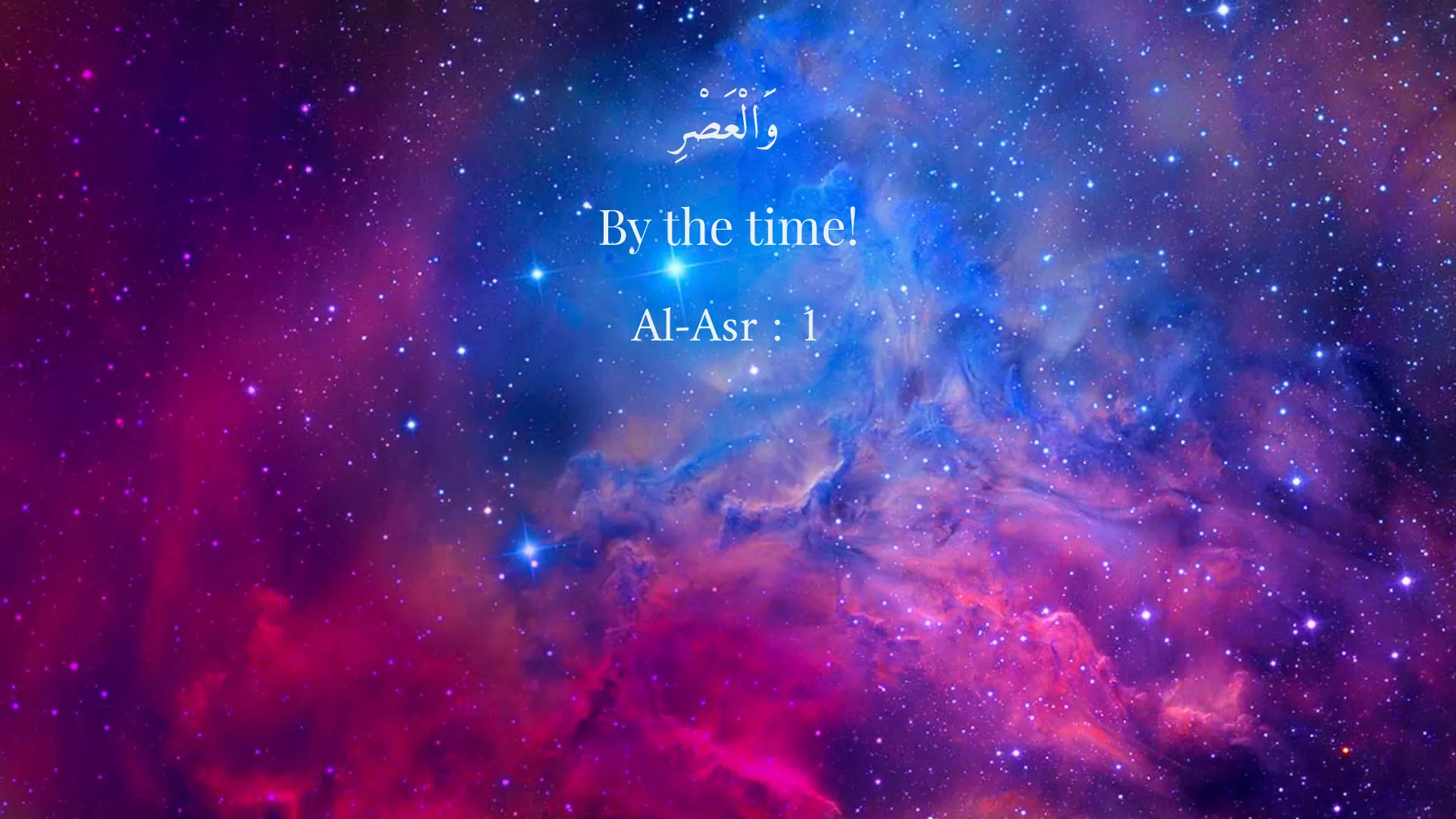Quranic Answer

Time is a fundamental aspect of human existence, intricately woven into the fabric of our daily lives. From the moment we wake up to the time we go to bed, our actions are governed by the clock. Time dictates when we eat, work, study, and interact with others. Its constant flow is a reminder of the inevitable passage of life and the opportunities that come and go. The significance of time transcends mere scheduling; it shapes our experiences, decisions, and ultimately, our destinies. In this context, the Holy Quran highlights the importance of time, particularly in Surah Al-Asr, where Allah emphasizes its value in the journey of humanity. In Surah Al-Asr, Allah swears an oath by time, declaring that humanity is indeed at a loss, except for those who believe, engage in righteous deeds, and encourage one another toward truth and patience. This verse serves as a profound reminder of the dual nature of time: while it is a precious gift, it can also be a source of regret if not utilized wisely. The implications are clear: being conscious of how we spend our time is crucial. It highlights the necessity of aligning our daily activities with our beliefs and values, ensuring that our time contributes positively to our spiritual and personal growth. For many, the concept of time can seem overwhelming. Our modern lives are filled with distractions and trivial pursuits that can easily consume our days. Those who fail to recognize the value of time often find themselves in a cycle of procrastination and disappointment. They let opportunities slip by, thinking there will always be a chance to start anew tomorrow. This mindset can foster a sense of dissatisfaction, as time lost can rarely be reclaimed. Instead, the Quran encourages vigilance and mindfulness regarding time management. Each moment is an opportunity to engage in acts of worship, kindness, and personal development. In Surah Al-Inshirah, Allah reassures us that with every hardship comes ease. This message serves as another reminder of the importance of utilizing our time effectively, especially in difficult situations. Challenges are an inherent part of life, and how we respond to them can significantly impact our character and destiny. Instead of wallowing in despair, we are encouraged to remember Allah and seek ways to improve ourselves. By doing so, we not only strengthen our faith but also optimize our use of time during tough times. Ultimately, time is a treasure, a fleeting resource that should be valued and respected. To live actively and productively, we must be mindful of the passing hours and days. This requires intentionality in our choices and a commitment to prioritizing what truly matters in our lives. It means identifying our goals and structuring our time in a way that allows us to pursue them with vigor and purpose. When we approach time with this mindset, we become empowered to create meaningful experiences that align with our values and aspirations. To illustrate this point, consider the concept of time management. Effective time management can lead to significant improvements in both personal and professional realms. It allows individuals to balance their responsibilities while keeping track of their goals. By allocating time slots to various activities—whether it be work, exercise, family, or spiritual growth—we can ensure that we are dedicating adequate attention to all aspects of our lives. Moreover, time management is not merely about scheduling; it involves understanding what deserves our attention and what can be set aside. In a world where distractions are abundant, refining the ability to focus on meaningful tasks can immensely boost productivity. This discipline is what separates those who achieve their goals from those who merely dream about them. Importantly, using time wisely also involves reflecting on how we spend our free time. Many people engage in mindless entertainment that adds little value to their lives. While the occasional break to unwind and recharge is necessary, we must be cautious about allowing unproductive habits to dominate our schedules. Reading, learning new skills, volunteering, and building relationships are far more fruitful ways to spend time that enriches our lives. In conclusion, time is a critical element of our existence that must be cherished and appreciated. The teachings of the Quran prompt us to approach time with seriousness and intention. Surah Al-Asr reminds us of the urgency to engage in acts of belief and righteousness, while Surah Al-Inshirah encourages us to remain steadfast despite life's challenges. By recognizing that each moment can shape our futures, we are called to be proactive participants in our lives—constantly seeking growth, improvement, and connection with others. The value of time lies not just in its passing but in the quality of how we choose to utilize it. Therefore, let us strive to live with purpose, making the most of this invaluable treasure, and ensuring that our time on earth bears fruit both in this life and the Hereafter.
Related Verses
وَالْعَصْرِ
By the time!
Al-Asr : 1
إِنَّ الْإِنْسَانَ لَفِي خُسْرٍ
Indeed, mankind is in loss.
Al-Asr : 2
إِلَّا الَّذِينَ آمَنُوا وَعَمِلُوا الصَّالِحَاتِ وَتَوَاصَوْا بِالْحَقِّ وَتَوَاصَوْا بِالصَّبْرِ
Except for those who have believed and done righteous deeds and advised one another to truth and advised one another to patience.
Al-Asr : 3
Short Story
Once upon a time, there was a man named Amir who was always busy with work and oblivious to time. He didn't realize how many opportunities he was missing every day. One day, when he reached fifty, he noticed how quickly time had flown. Amir decided to change the way he spent his time positively and started dedicating more time to his family and friends. He planned his days carefully, and from then on, he never felt regretful.